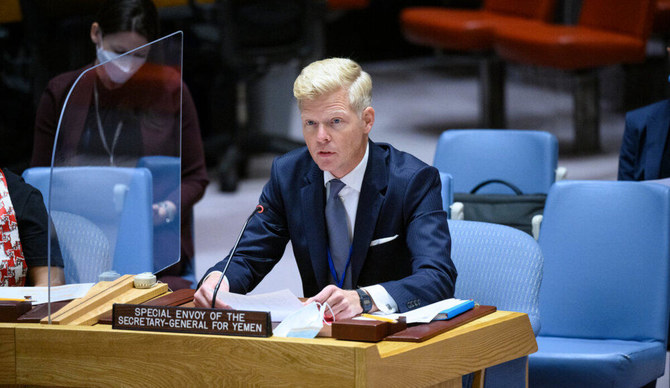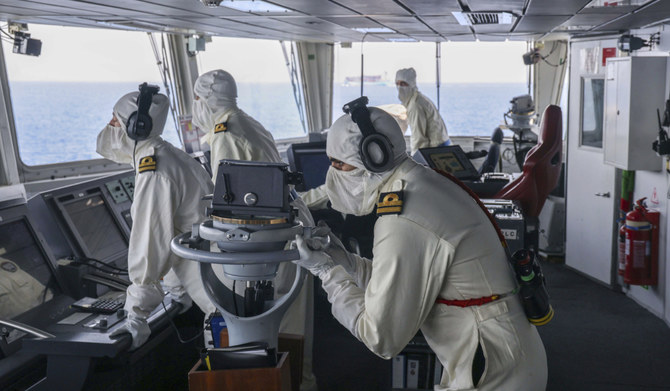On the first anniversary of the deal, Hans Grundberg said that the government and the Iran-backed Houthis had mostly stuck to its terms. He warned however that the current rise in hostilities might lead to it unraveling.
“Even after its expiration, the truce is broadly holding and many of its elements continue to be implemented. But the truce’s most significant promise is its potential to jumpstart an inclusive political process aimed at comprehensively and sustainably ending the conflict,” Grundberg said.
The UN-brokered truce marks the longest pause of hostilities in Yemen’s nine-year war. It has led to a considerable decline in civilian deaths and internal displacement.
Under the truce, the parties agreed to end hostilities, permit commercial flights from Sanaa airport, assist the arrival of fuel ships at Hodeidah port and work together to unblock highways in Taiz and other Yemeni towns. However, the Houthis have yet to lift their siege of Taiz.
Grundberg warned that the military, economic and verbal escalation posed a danger to the truce. He said that his office was working to transform it into a more inclusive and long-lasting political process.
“There is a need to protect the gains of the truce and to build on them towards more humanitarian relief, a nationwide ceasefire, and a sustainable political settlement that meets the aspirations of Yemeni women and men,” he said.
All parties must properly enforce the truce, de-escalate, and collaborate to secure peace, said the envoy.
“I have been engaging politically with the parties and other Yemeni actors, as well as regional and international stakeholders, before, during and after the truce to build consensus around launching an inclusive political process.”
Thousands of passengers have flown on commercial flights from Sanaa airport in the last year, and dozens of fuel tankers have arrived at Hodeidah port, alleviating chronic fuel shortages in Houthi-controlled regions.
To the dismay of tens of thousands of people in besieged Taiz, talks between the Yemeni government and Houthis that began in the Jordanian capital of Amman in May collapsed after the Houthis refused to lift their blockade of the major access routes.
Attempts to renew the truce were thwarted in October when the Houthis started raids on oil facilities in government-controlled Hadramout and Shabwa to compel the government to split oil profits and pay public workers under their control.
After the strikes, Yemen’s government designated the Houthis as a terrorist group and threatened to begin large-scale military operations.
The UN envoy’s statement comes as the Houthis continue their military operations in Taiz and Marib, fighting government forces on the ground and bombarding them with drones and missiles.
Local media reported on Sunday that heavy fighting broke out between the Houthis and the government’s Shabwa Defense Forces and the Giants Brigades in the southern province of Shabwa after the Houthis began a fresh offensive in Merkhah Al-Ulya District, the latest in a string of aggressive Houthi attacks in the district over the past 10 days.
The Houthis also assaulted government soldiers in the Hareb district, south of the central province of Marib, resulting in heavy clashes that killed or injured dozens of fighters and displaced hundreds of people.
The UN Yemen envoy urged Yemenis on Sunday to cease hostilities, participate in negotiations, and make compromises to pave the path for a peace deal.
“This is not the time for escalation and zero-sum games. More than ever now is the time for dialogue, compromises, and a demonstration of leadership and a serious will to achieve peace,” Grundberg said.






















